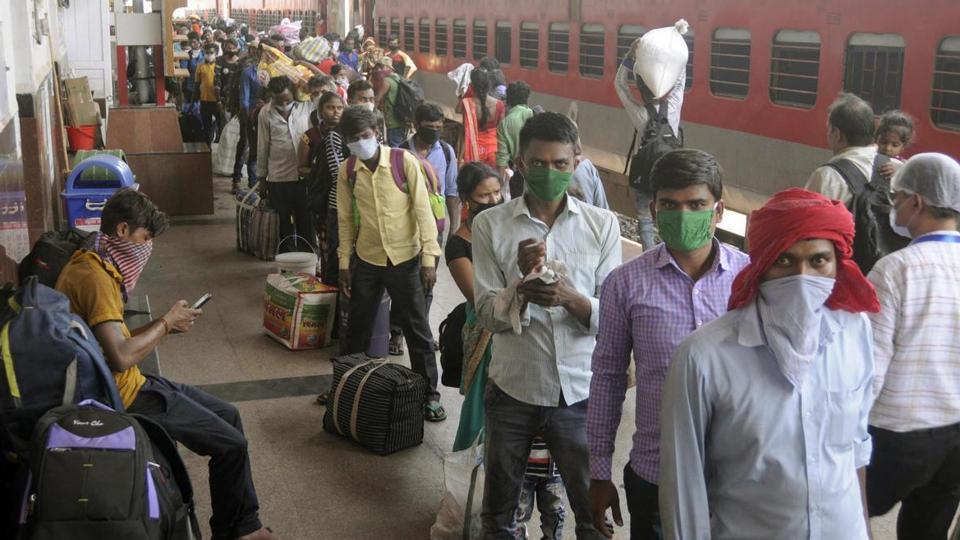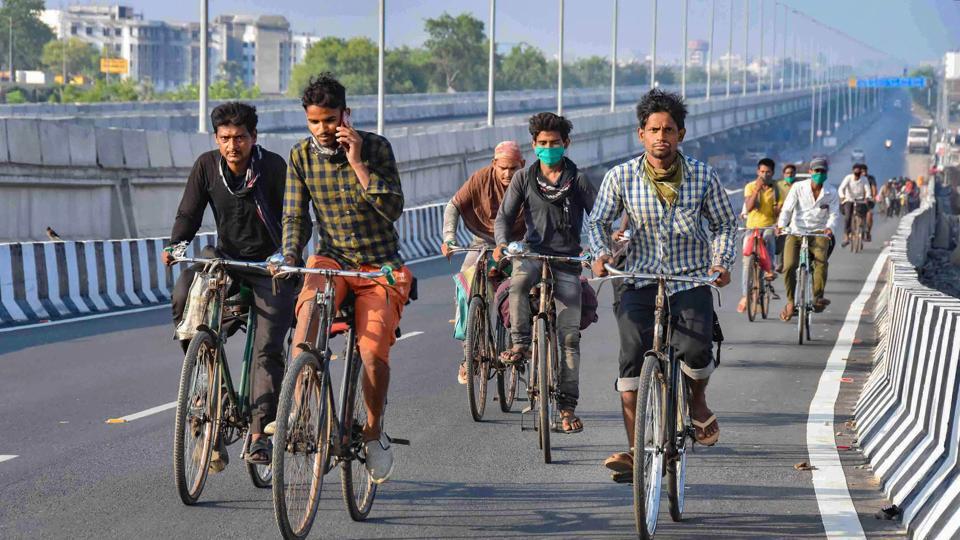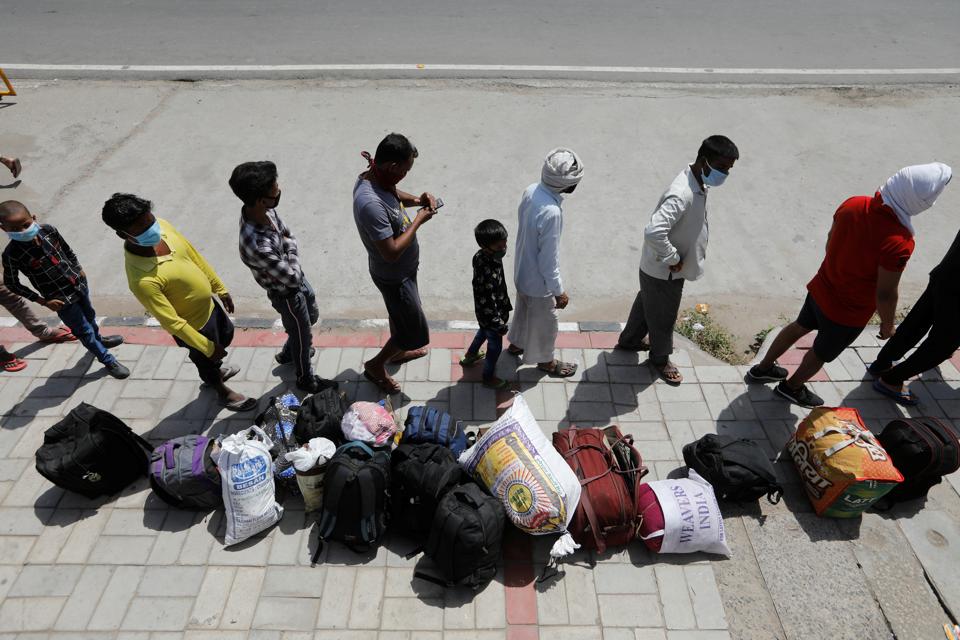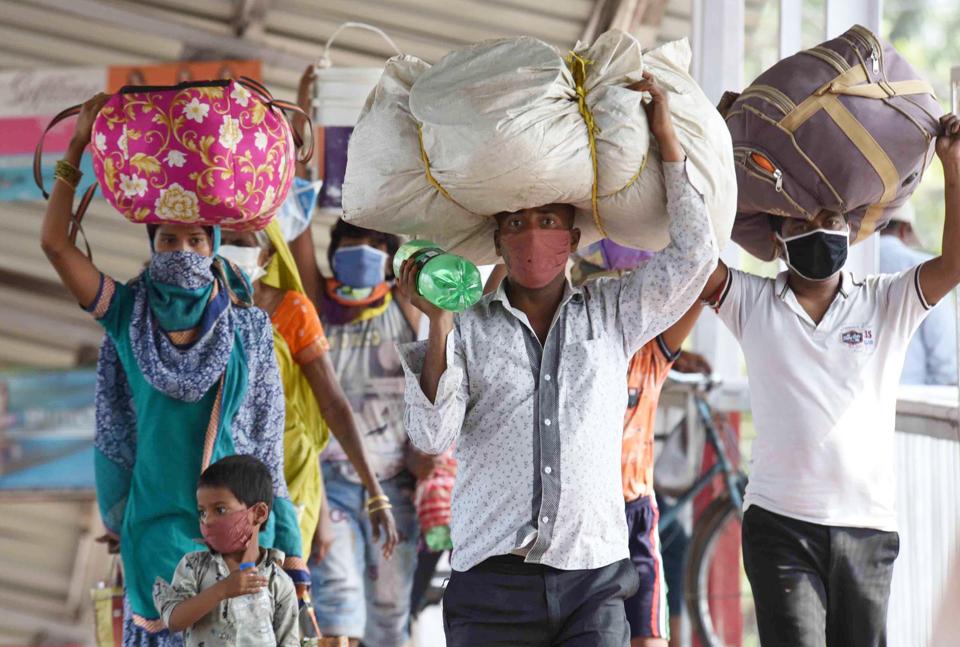prasad1
Active member
The Centre on Thursday told the Supreme Court that it has sent 97 lakh migrant workers home since May 1, further underlining that it has taken “unprecedented steps” to meet this “unprecedented crisis”.
“This is an unprecedented crisis and we are taking unprecedented measures,” Solicitor General Tushar Mehta told the court during a hearing on migrant labourers’ situation amid Covid-19 lockdown.
The top court remarked that stranded migrant workers who want to travel back to their home states should not be stopped.
“When a migrant worker wishes to go to a state, no state can say that we will not take you,” a bench headed by Justice Ashok Bhushan remarked while hearing a suo motu case initiated by it on migrant labourers.
The court also remarked that the government should work out a timeframe within which migrant workers desirous of returning to their home states can be transported. During the interim period, food and other facilities should be provided, Justice Ashok Bhushan said.
On Tuesday, the top court had issued notices to the Centre and the state governments, saying there have been “inadequacies and certain lapses” on their part in dealing with the migrant workers’ situation.
Media reports, the court order said, had been “continuously showing the unfortunate and miserable conditions of migrant labourers” walking on-foot and cycles from long distances.

 www.hindustantimes.com
www.hindustantimes.com
I am sorry the so-called "nationalists" are totally quite. I suppose they are only the rich aristocrats sitting in their armchair draped in Tricolor, or is it only saffron.
“This is an unprecedented crisis and we are taking unprecedented measures,” Solicitor General Tushar Mehta told the court during a hearing on migrant labourers’ situation amid Covid-19 lockdown.
The top court remarked that stranded migrant workers who want to travel back to their home states should not be stopped.
“When a migrant worker wishes to go to a state, no state can say that we will not take you,” a bench headed by Justice Ashok Bhushan remarked while hearing a suo motu case initiated by it on migrant labourers.
The court also remarked that the government should work out a timeframe within which migrant workers desirous of returning to their home states can be transported. During the interim period, food and other facilities should be provided, Justice Ashok Bhushan said.
On Tuesday, the top court had issued notices to the Centre and the state governments, saying there have been “inadequacies and certain lapses” on their part in dealing with the migrant workers’ situation.
Media reports, the court order said, had been “continuously showing the unfortunate and miserable conditions of migrant labourers” walking on-foot and cycles from long distances.

‘Taking unprecedented steps’: Centre to Supreme Court on migrant workers
The top court had earlier issued notices to the Centre and the state governments, saying there have been “inadequacies and certain lapses” on their part in dealing with the migrant workers’ situation.
I am sorry the so-called "nationalists" are totally quite. I suppose they are only the rich aristocrats sitting in their armchair draped in Tricolor, or is it only saffron.



